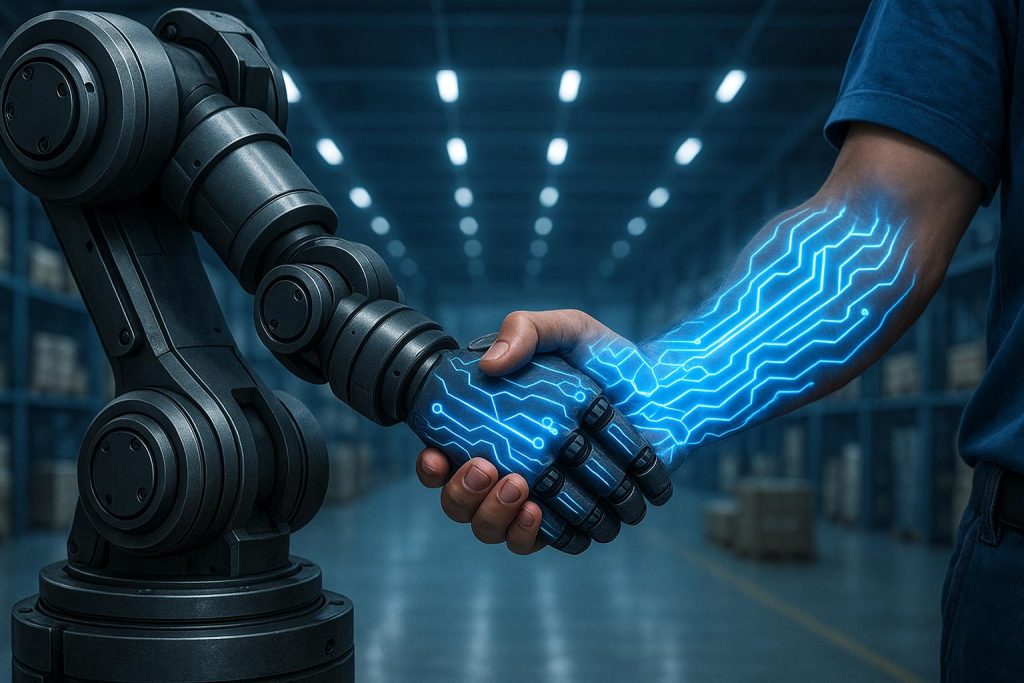Listen to the article
Advancements in agentic AI are reshaping supply chain operations by enabling autonomous decision-making supported by human oversight, promising increased efficiency, resilience, and customisation across global logistics networks.
Imagine onboarding a new intern enthusiastic but inexperienced in supply chain operations. This scenario increasingly resembles the integration of agentic artificial intelligence (AI) within the supply chain sector. Agentic AI refers to systems capable of achieving specific goals with minimal supervision through “AI agents”—machine learning models that emulate human decision-making in real time. Still in nascent stages, this technology holds significant promise for supply chains, where decisions depend on analysing complex data sets such as staffing, inventory, routing, deadlines, and tariffs.
The true potential of agentic AI lies in accelerating decision-making, leveraging computers’ ability to rapidly process large volumes of information. However, this technology requires extensive training to navigate the intricacies of warehousing, fulfilment, and transportation. Far from replacing human expertise, agentic AI depends on supply chain professionals to guide its development and performance. Sanjev Siotia, executive vice president and chief technology officer at Manhattan Associates, likens this dynamic to a symphony orchestra where AI acts as the conductor but relies on skilled musicians—the humans—to play their parts. Manhattan Associates recently unveiled a suite of AI agents designed to autonomously enhance supply chain execution and optimisation. These include digital agents such as the Intelligent Store Manager, Labor Optimizer Agent, Wave Inventory Research Agent, Contextual Data Assistant, and Virtual Configuration Consultant. The company also introduced the Manhattan Agent Foundry platform, enabling clients to build customised AI agents that align with their unique operational needs, either independently or through partnerships.
The applications for agentic AI are broad and practical. They span managing warehouse flows by balancing reserves and reallocating labour to maintain schedules, to automating transportation invoicing by reading carrier documents and resolving discrepancies. Additionally, these agents can respond to customer inquiries about shipment statuses and investigate missing inbound shipments, streamlining fulfilment processes significantly.
Effective training of AI agents is essential to harness their benefits. Rachit Lohani, chief product and technology officer at e2open, emphasises the difference between automation, which is rigid and rule-based, and agentic AI, which functions more like a decision-making assistant that learns through interaction. Training involves understanding key performance metrics, decision-making rationale, and optimisation goals to guide the AI’s autonomous functions. Crucially, AI improves over time with ongoing human oversight and feedback, reinforcing the indispensable role of supply chain professionals in the “human-in-the-loop” governance model to ensure accuracy and reliability.
Industry data supports growing confidence in agentic AI’s readiness and impact. According to IBM, nearly 70% of Chief Operating Officers (COOs) and Chief Supply Chain Officers (CSCOs) view agentic AI as market-ready, with tangible improvements seen in revenue growth, operational efficiency, and supply chain responsiveness. IBM’s internal use of AI agents has generated substantial cost savings and productivity gains over a two-year period, showcasing the technology’s strategic value. Moreover, IBM’s research underscores agentic AI’s ability to operate autonomously while collaborating across supply chain functions—optimising procurement, inventory, production, logistics, and customer service. Their flexible AI models integrate smoothly with existing analytics tools, improving overall supply chain resilience.
Further advancement in the agentic AI ecosystem comes from collaborations like that between IBM and AWS, which have introduced enhanced tools and frameworks to develop and manage AI agent networks. This includes access to IBM’s Granite 3.2 large language models via Amazon Bedrock Marketplace and SageMaker JumpStart, facilitating faster deployment of customised AI applications.
Taken together, these developments affirm that agentic AI is not a theoretical future prospect but an emerging force reshaping supply chain operations. The technology’s evolution hinges on well-trained AI agents supported by expert human oversight, ensuring a symbiotic partnership where machine efficiency complements human insight, ultimately forging more resilient, responsive, and intelligent supply chains.
📌 Reference Map:
Source: Fuse Wire Services


